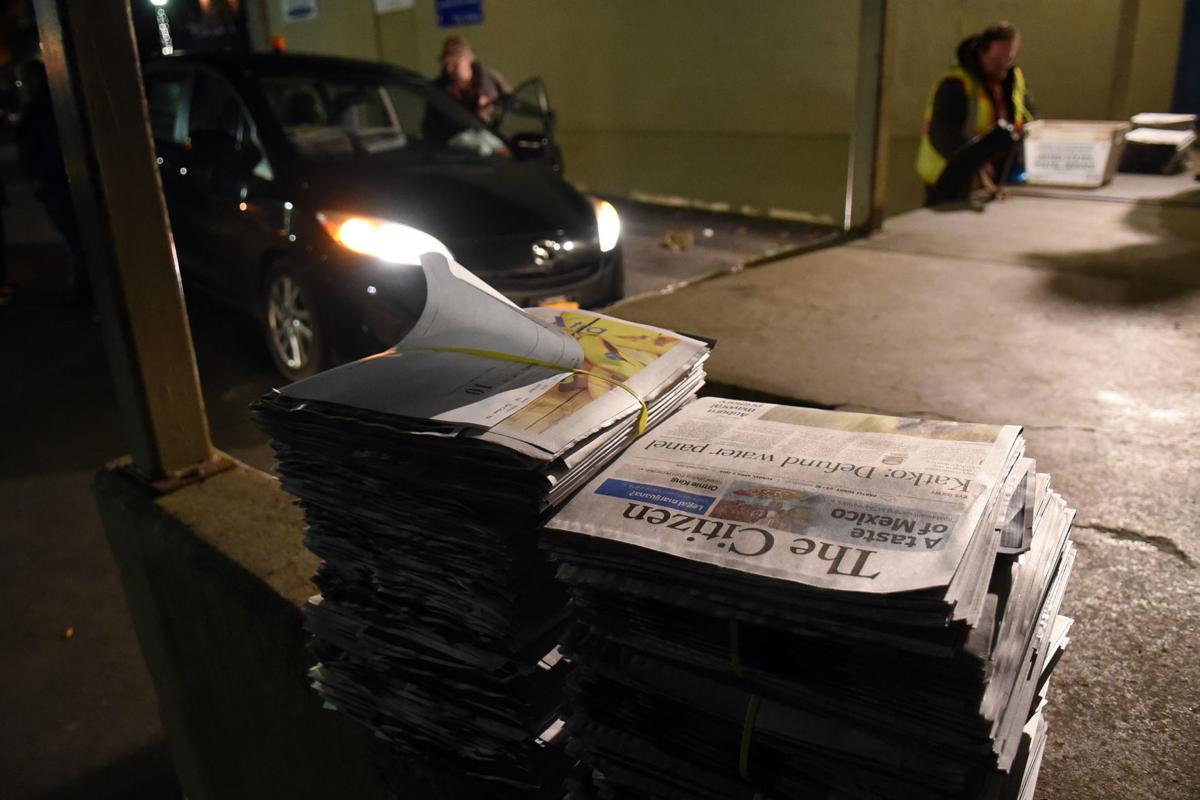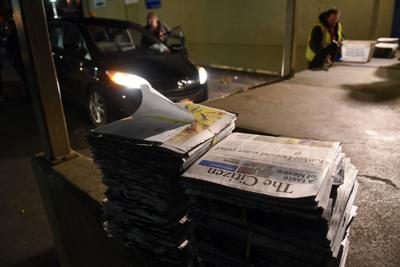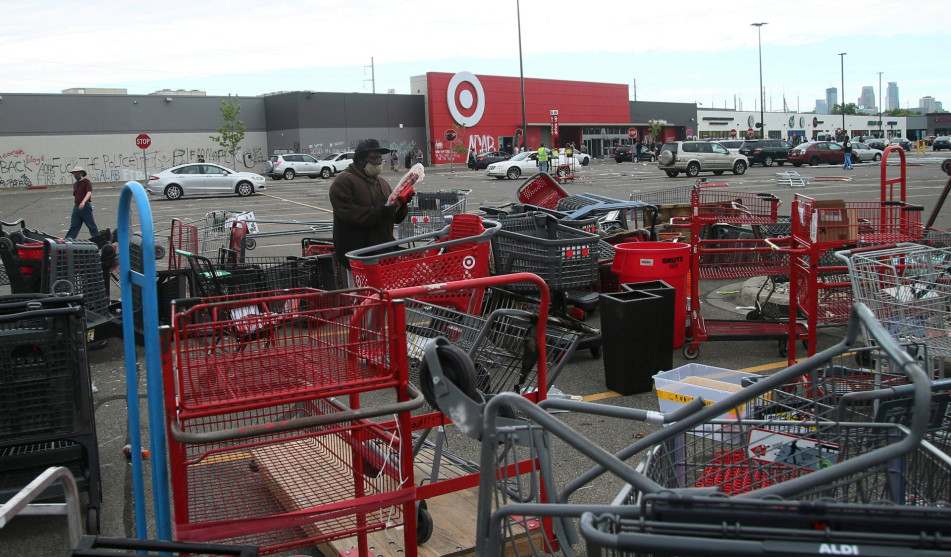How the federal government could help keep local news alive

Delivery drivers pick up the bundles of The Citizen after the final press run in Auburn for the Sunday, April 7, 2019 edition of the paper.
Kevin Rivoli, The Citizen
As other industries cope with the economic crisis caused by the COVID-19 pandemic, local newspapers and broadcasters are struggling.
Advertising, the main source of revenue for newspapers, radio and television stations, sharply declined when New York and other states ordered non-essential businesses to close. For newspapers, digital and print subscriptions can generate some revenue. But it’s not enough to close the gap created by the economic downturn.
With advertising revenue cratering, many local news outlets have either laid off or furloughed employees. (Several employees at The Citizen will be furloughed over the next two months.) Some newspapers have reduced their print schedule. Others have eliminated print editions.
There could be help on the way. Congressional Democrats and Republicans are publicly supporting various efforts to assist local news organizations.
A group of U.S. senators signed a letter in April that requested funding for local newspapers in a coronavirus relief bill. A separate letter from dozens of members of Congress urged President Donald Trump to direct federal advertising funds to local media outlets.
In a letter sent last week, more than 120 members of Congress asked House and Senate leaders to allow local news organizations to access the Small Business Administration’s Paycheck Protection Program. The program, which has been funded twice in coronavirus relief bills, was established to help businesses keep workers on the payroll. If a business does that for at least eight weeks, the loan turns into a grant they don’t have to repay.
Paul Boyle, senior vice president of public policy for the News Media Alliance, a trade association representing newspapers, explained that any of these proposals are short-term measures the federal government could take to help local news.
Shifting federal advertising dollars to newspapers could be significant. Boyle noted that most of the federal government’s advertising budget is for military recruitment. While there are advertisements on national television, there are partnerships with sports leagues. With no sporting events being held due to the pandemic, Boyle thinks the funds usually reserved for sports could be moved to newspapers.
Another potential source of revenue for local news: The census. Even though the door-to-door count has been delayed, it will likely restart later this year. Boyle mentioned that including advertisements or messaging in local newspapers could be an alternative to door-to-door canvassing.
Local news organizations could play a bigger role in distributing information about the federal response to the pandemic. Boyle said that information about the phased reopening or a COVID-19 vaccine could be provided through the local news outlets.
One proposal that’s gaining traction is a grant or tax credit to support journalists and local news employees. Boyle said the News Media Alliance is working with the House of Representatives to draft legislation that would provide a tax credit for employee retention. An early version of the bill would provide a 50% payroll tax credit to employers that keep employees on the payroll.
The change to the Paycheck Protection Program is also receiving attention. Because many local news organizations are owned by corporations with thousands of employees, they are ineligible for the loan program. The News Media Alliance wants to expand the program and allow local news outlets to be considered affiliates, which would allow them to receive PPP loans.
Members of Congress who are proponents of this idea believe it could help local broadcasters and newspapers survive the economic collapse.
“Local news publishers and broadcasters employ thousands of journalists — including reporters, photographers, newsroom staff and others — to provide timely and accurate news to keep people informed about their communities,” they wrote. “Under ordinary circumstances, this work is essential to public health and safety, local businesses and our democracy. But is more important than ever as our country responds to and recovers from the COVID-19 crisis.”
Beyond the short-term proposals, Boyle detailed some ideas that could help local news organizations further into the future.
One proposal is a tax credit for digital subscriptions or all subscriptions, including print. There’s also legislation in the works that would allow newspapers to negotiate with Facebook and Google, two large internet companies that have profited off local news stories, to receive remuneration for that content.
Based on the role local news has played during the pandemic, Boyle thinks the federal government should provide support.
“What we learned during the COVID-19 crisis is it’s extremely important to get actual, fact-based information out to the public,” he said. “Newspapers have played this public service role of helping their communities and their readers understand the impact of the crisis in their community, what they need to do to protect themselves and others, what the government is doing to respond to the crisis at the local, state and federal level.”
Boyle added, “The federal government, I think, could step in and recognize the value of local newspapers during this crisis and beyond and try to help provide assistance to extend the runway so that newspapers are around to cover the next crisis.”
Diane Kennedy, president of the New York News Publishers Association, agrees. She said the trade group representing newspapers in New York supports federal legislation to provide emergency funding to all newspapers.
“There’s never been a time when citizens needed local journalism more than right now,” Kennedy wrote in a message to The Citizen.
There are early discussions about another COVID-19 relief bill in Congress. Like the previous relief bills, there will likely be many priorities that need to be addressed. But most members of the House and Senate are on record supporting assistance for local news organizations.
Boyle doesn’t think it’s different than what happened more than 200 years when the federal government set subsidized postal rates for newspapers so that communities could be informed.
“It’s about keeping that local news alive in cities and counties and towns across the country,” he said.
Politics reporter Robert Harding can be reached at (315) 282-2220 or robert.harding@lee.net. Follow him on Twitter @robertharding.




